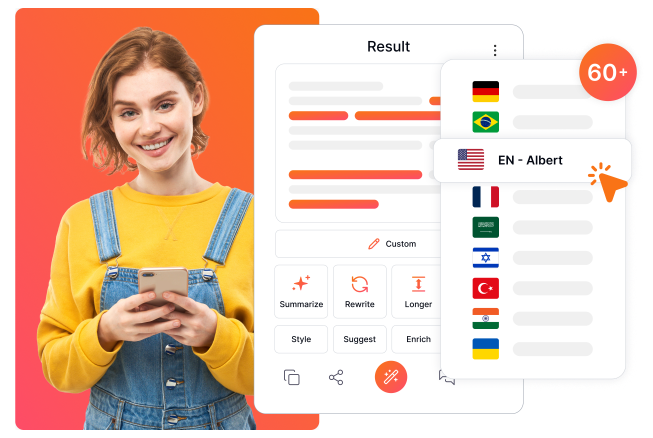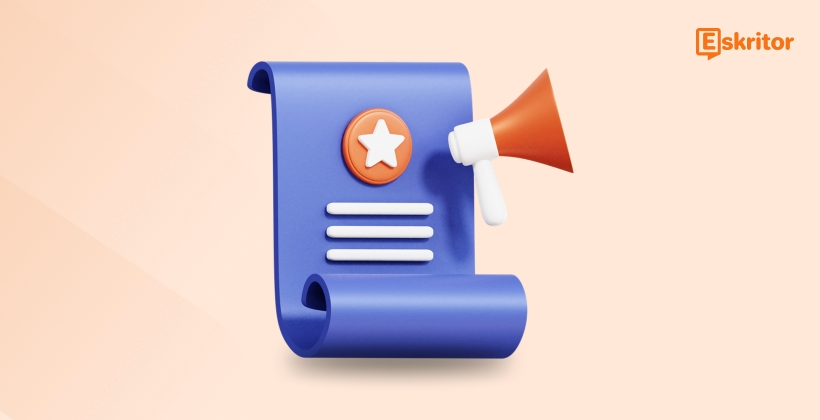How AI Writers Are Transforming Content Creation
How AI Writers Are Transforming Content Creation
Blog Article
The Future of AI Writing Technology Explained
Artificial intelligence (AI) publishing engineering has developed rapidly in the last decade, reshaping just how we develop and connect to written content. From syntax correction methods to AI-generated novels, the possibilities seem limitless. But wherever just is this technology going? Let's discover the inventions, challenges, and potential potential of ai grammar checker.

How AI Writing Technology Works Nowadays
At its core, AI publishing engineering utilizes Organic Language Processing (NLP) and equipment learning. These technologies allow types to understand, make, and increase individual language. Resources accessible today master tasks like:
1. Content Generation
AI has reached a point wherever it could generate total website threads, social media captions, and also information articles. Some models are capable of mimicking human writing styles therefore successfully that unique between AI- and human-written material is now significantly difficult.
2. Syntax and Style Suggestion
AI-powered publishing personnel don't only always check for syntax and punctuation errors; additionally they offer ideas to enhance tone, clarity, and sentence structure, creating complex writing accessible to a wide audience.
3. Emotion Evaluation
AI can consider the mental tone of a bit, allowing companies to evaluate how their communications may resonate with readers. That is especially useful in marketing and client interaction.
The Current Traits in AI Publishing Engineering
A few tendencies are surrounding the following stage of AI-powered publishing instruments:
• Personalization
AI writing engineering is increasingly capable of tailoring material to individual preferences. Designs may adjust to a user's publishing model, ensuring the result feels authentic.
• Multilingual Abilities
Several AI resources are growing their international reach by providing enhanced translation characteristics and support for numerous languages.
• Improved Research Functions
AI resources today get the capability to analyze large levels of information and provide fact-checked, well-researched writing in seconds, simplifying the method for experts in industries like legislation, financing, and journalism.
What the Potential Keeps for AI Writing Technology
1. Improved Imagination
While recent AI is proficient at generating material, its imagination remains restricted to patterns within its instruction data. Future AI is not only expected to help but to generate original, useful performs that challenge human imagination.
2. Easy Relationship
Envision an AI that performs alongside you in real-time, performing your sentences, conducting stay edits, and also brainstorming ideas. AI publishing methods might soon become co-authors, allowing creativity to flow uninterrupted.
3. Honest and Accessible Design
With growing problem about plagiarism, misinformation, and bias, designers are working toward more transparent AI instruction procedures and honest implementation. Potential tools will probably present more extensive citations and procedures to make sure accountability.
Difficulties and Criteria
The progress of AI writing technology is not without hurdles, including:
• Honest Problems

Who possesses material created by AI? How can we assure AI-generated material is not spreading misinformation? These debates stay unresolved.
• Human-AI Balance
May AI complement individual creativity or completely change certain functions? Several authors and musicians be concerned about their relevance in an AI-driven world.
• Availability Divide
Not all organizations or regions have identical usage of cutting-edge AI tools, raising issues concerning the affect with this technology on global inequality.
Adjusting the Way We Create
AI writing engineering is still in their infancy compared to its potential. Whether you are students creating essays, a content marketer targeting certain audiences, or a author seeking inspiration, AI instruments may continue steadily to revolutionize the writing process. The following decade promises breakthroughs that mix human ingenuity with unit intelligence, creating a potential wherever writing is better, accessible, and impactful than ever before.
Report this page